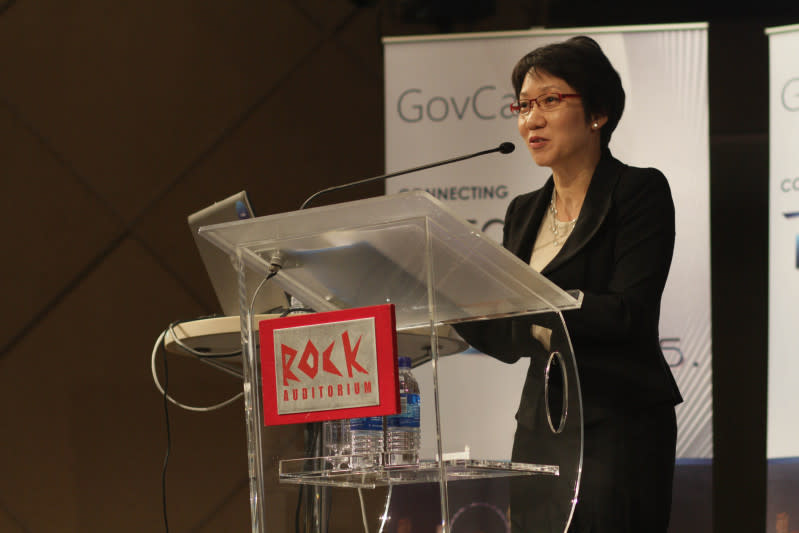‘We hope to develop into a more collaborative govt’

In today's digital age, citizen engagement online has become a paramount issue, and the Singapore government over the years has been trying to forge closer relationships and enhance collaboration between the government and citizens.
Speaking on Friday at the GovCamp forum organised by Microsoft Singapore, Grace Fu, Senior Minister of State for Information, Communication and the Arts, said that the government is working hard to reach out to citizens online.
She cited the establishment of the REACH online feedback channel, which allows citizens to air their views and make suggestions on public policies and national issues, and its expansion online with the set up of Twitter and Facebook accounts to engage citizens. Facebook has even been used to hold discussions with the public.
Ideas coming from the public
James Kang, assistant chief executive of the Infocomm Development Authority (IDA), thinks that Singapore's new generation is demanding more -- to be involved, to be engaged, and to be part of a policy formation -- and said that the government is working to encompass the new mindset.
"The 'government knows best' days are over. The best ideas now come from the population, and we hope to develop ourselves into a more collaborative government where co-creation is key," the senior civil servant said during a panel session.
"Now it's about collaboration… the government used to be like a chef, (it) prepared the dish and gave it to a citizen as the customer, but in co-creation we are partners, so both of us are in the kitchen," he added.
However, social media and the government do not converge as well, due to their conflicting nature. The inherent nature of social media, which is fast-paced and real-time, is different from how a government operates, which tends to be conservative and has many hierarchies, increasing the time needed for decision making as a result.
In addition, the sudden jump into the social media bandwagon by government agencies makes it difficult for older civil servants to cope with the fast-paced nature of social media.
Engagement can be improved
Kirsten Han, former deputy editor of socio-political website The Online Citizen told Yahoo! Singapore that the government does seem to be a little bit on the back foot when trying to engage citizens online.
"Perhaps with the anonymity or 'one in a crowd of many' feel to social media, some people feel safer to flame pages, including government pages, which can make one reading through comments very daunting and feel like it's impossible to get constructive ideas from social media, even when that's not true," she said.
She also thinks that more could be done to improve citizen engagement online, and politicians need to recognise that their Facebook pages are not just one-way bulletin boards.
"When people write to them on their pages asking for advice or help, or giving criticism and suggestions on improvement, it would be good to have some sort of acknowledgement or reply, to let those who made the effort to write in know that they are not just speaking into thin air," the freelance blogger and journalist said.
However, the irony is that while citizens want their comments to be heard by politicians online, Singaporeans do not want politicians to spend a massive amount of time on social media pages, but want them to focus on their jobs instead.
Speaking from the U.S. government perspective, professor Jane Fountain, who chairs the World Economic Forum's global advisory council on the future of government, said in an interview with Yahoo! Singapore that many U.S. government agencies have huge social media presence, and share all public information, except information that could threaten its national security. Yet, the Internet is still filled with a myriad of criticisms aimed towards U.S. government.
"Such criticisms online are inevitable, and the Obama administration doesn't care about these negative comments at all, and they aren't worried that these criticisms will give opposition parties an edge," said the political scientist, who was one of the four members on a panel leading the discussion.
Do you have constructive ideas you would want to share with the government? Also, do you think the government should take a similar stance as the U.S. and not worry about the abundance of negative comments online?
The writer is a 17-year-old student and technology blogger who loves social media and gadgets. He is also Singapore's top Twitter user with over 220,000 followers.

